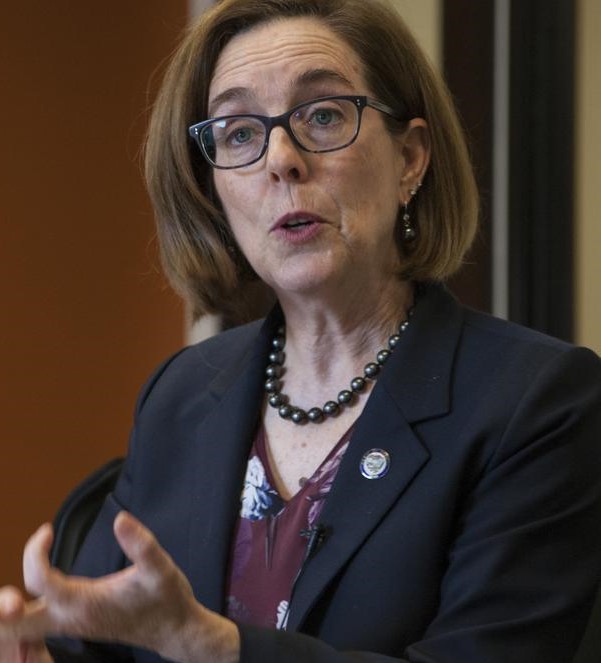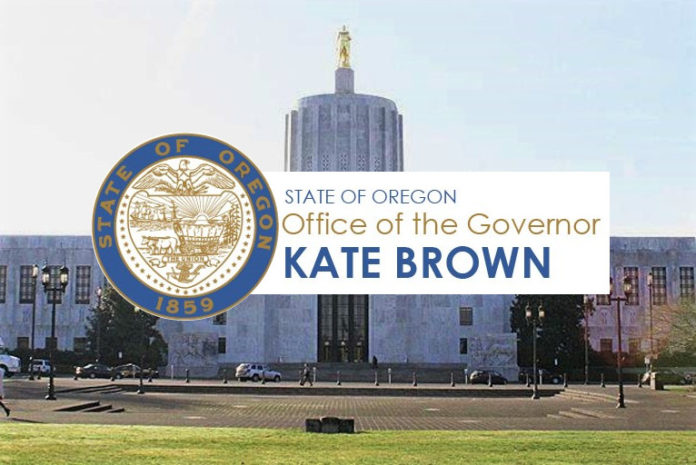In a Friday, July 31st press release, Governor Kate Brown announced the creation of the Racial Justice Council. The Council is an advisory group to the Governor with subgroups focused on criminal justice reform and police accountability, health equity, economic opportunity, housing and homelessness, and environmental justice/natural resources. The council will also provide principles and recommendations that center racial justice to the Governor to inform the 2021-23 Governor’s Recommended Budget.
The Council will examine and begin to dismantle the racist policies that have created grave disparities in virtually every part of our society, including: mass incarceration, prison and criminal justice, access to housing, health outcomes, economic opportunity and wealth creation, and education. The council members come from a diverse set of backgrounds with a majority from BIPOC (Black, Indigenous and People of Color) communities.
“For far too long, Oregon’s Black, Indigenous and People of Color and Tribal members haven’t had a seat at the table,” said Governor Brown. “The urgency could not be greater to center the voices of those who are most impacted by historical and institutional racism in Oregon and create a better system–together–that fully supports us all. Our budgets, policy agenda, and priorities should reflect, support, and honor the communities who have been most deeply impacted by systemic racism.”

“I’m excited to be joining the Racial Justice Council and working with the Governor and her office,” said Kayse Jama, council member and Unite Oregon Executive Director. “We need state leadership during these times, and our communities have waited a long time to ensure people of color, immigrants and refugees, and rural voices are reflected in budgets and policy priorities. We have a lot of work to do right away, and I am excited for the opportunity.”
The Council will:
- Recommend changes to state policies, practices, and budgets to align them within a racial justice and equity framework.
- Provide guidance for racial justice action plans for criminal justice and police accountability, housing and homelessness, economic opportunity, health equity, and environmental justice.
- Develop long-term strategies designed to institutionalize racial justice into the way the state conducts every aspect of its business.
- Directly communicate with other community leaders and bring their feedback to the Council.
- Identify areas of potential future collaboration with the state and outside stakeholders.
- Direct the collection of data from across sectors of society to support smart, data-driven policy decisions.
- Provide principles and recommendations that center racial justice to the Governor to inform the 2021-23 Governor’s Recommended Budget.
- Include the participation of state legislators to support passage of policies in the 2021 legislative session.
Achieving these goals will require a new approach. Establishing racial justice will take foundational reform. The Racial Justice Council will be inclusive of representatives from diverse backgrounds, while at the same time explicitly centering Black, Indigenous, and People of Color as the Council works with Governor Brown’s administration to implement policies for an equitable Oregon.
“I am pleased to join the Governor’s Racial Justice Council,” said Don Ivy, council member and a member of the Coquille Tribe. “There is work to do that while the Council can’t undo all past injustices can strive to make injustice a thing of the past.”
“This is a unique moment, and I am honored to work with the Governor’s office in moving from words into action,” said Chi Nguyen, council member and entrepreneur. “To have the Governor not only convene, but also chair this Council, shows the dedication behind her commitment that this Council’s work will go beyond mere words. Our communities have waited too long. We are ready to dive into action with the work before us.”
“This Council is a signal to Oregonians that our state is listening to the cries of our BIPOC siblings,” said Reyna Lopez, council member and PCUN Executive Director. “I am honored to accept this position, and commit to bringing my personal experience as a first generation, Latinx Oregonian–daughter of immigrant agricultural workers–to make our state a better place for BIPOC communities everywhere.”


















